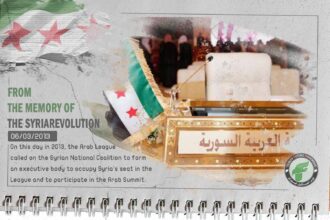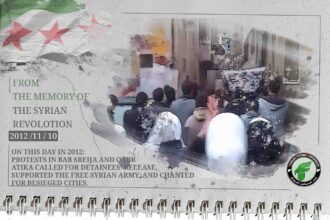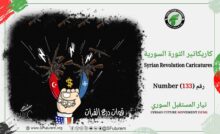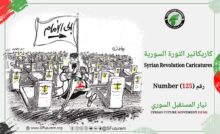Symbols and Figures of the State in Syria (16): Salah al-Bitar
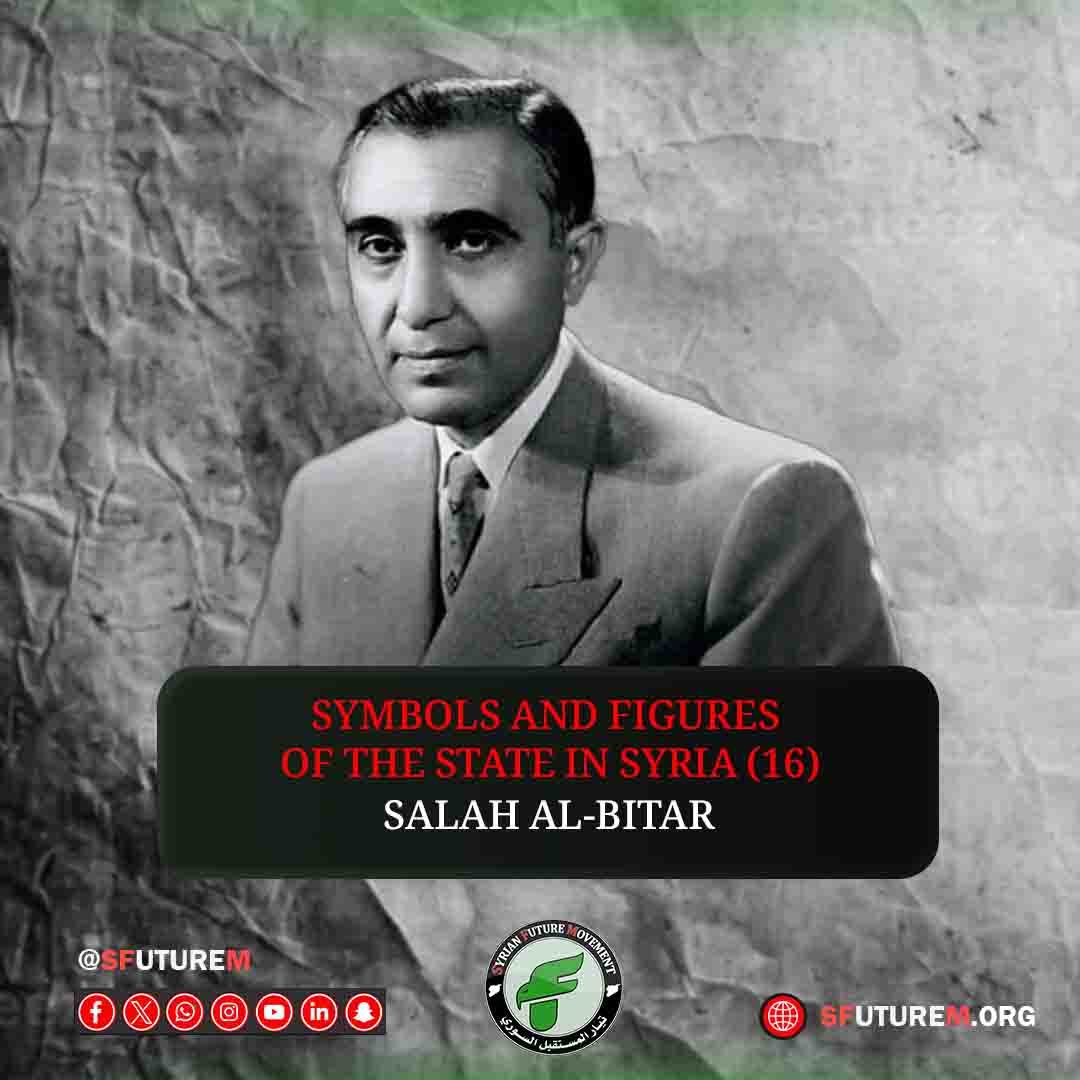
- Salah Khair Salim al-Bitar
- His grandfather was Sheikh Salim al-Bitar, known as “al-Faradi.” Sheikh Salim had four sons: Sheikh Khair, the father of Salah al-Bitar; Sheikh Mohammed, who held the position of Secretary-General of Fatwa in Damascus; Sheikh Abdul Ghani, known as “the young Shafi‘i”; and Sheikh Abdul Razzaq, the author of the book Hilyat al-Bashar fi Tarikh al-Qarn al-Thalith Ashar al-Hijri.
- Salah al-Bitar was born in 1912 in the Midan district of Damascus.
- He studied in Damascus schools and, upon completing secondary school, went to France to continue his university education at the Sorbonne, specializing in physics.
- He met Michel Aflaq there, and they were united by shared socialist French principles, beginning a close friendship.
- Together, they founded the Arab Students’ Union in France.
- In 1934, after completing his studies, he returned to Damascus.
- He and Michel Aflaq were appointed to the Grand Preparatory School, where al-Bitar taught astronomy and physics, while Aflaq taught history.
- When the government prohibited any activity by them, both resigned from teaching.
- They chose to meet daily with students at the Red Mill Café, near the Preparatory School, after school hours.
- Together, they founded the magazine al-Tali’a to promote their principles.
- In 1939, al-Bitar contributed to the founding of the Arab Revival Organization, which later became the Ba’ath Arab Party.
- In 1945, the first political bureau of the Ba’ath Party was elected. In 1947, the Ba’ath held its first congress, where al-Bitar was elected Secretary-General.
- In 1953, the party merged with the Arab Socialist Party, becoming the Ba’ath Arab Socialist Party. The founders also launched a newspaper called al-Ba‘ath, and in the 1947 party congress, Salah al-Bitar was elected a member of the National Leadership as the second founder of the Ba’ath Party after Michel Aflaq, the party’s Dean.
- He was imprisoned outside Damascus in 1948 due to his opposition to renewing Shukri al-Quwatli’s presidency of the Syrian Republic.
- In 1949, President Husni al-Za’im arrested him along with other members of the National Leadership due to their opposition to some of his policies.
- In 1952, Adib al-Shishakli ordered the arrest of Salah al-Bitar, along with Aflaq and Akram al-Hourani, for inciting university students against his rule. However, they managed to secretly flee Damascus to Beirut and then to Rome.
- In 1954, al-Bitar played a role in toppling Adib al-Shishakli’s regime.
- He was appointed Foreign Minister in Sabri al-Asali’s third and fourth governments.
- After the establishment of the union between Syria and Egypt on February 22, 1958, he was appointed Minister of Culture and National Guidance in October 1958.
- He resigned from his position in December 1959.
- In 1961, al-Bitar signed the secession document, participating in the new Syrian government, but later withdrew his support because it opposed Arab unity.
- After the Ba’ath Party came to power on March 8, 1963, al-Bitar served as Prime Minister four times.
- Following the February 23, 1966 coup led by Salah Jadid, al-Bitar was arrested but managed to flee to Lebanon.
- In 1969, he was sentenced to death in absentia.
- In January 1978, Hafez al-Assad attempted to win him over, hoping al-Bitar would settle in Damascus as a counterweight to Aflaq in Baghdad, but al-Bitar refused.
- He returned to Paris and launched a periodical called Arab Revival.
- In his magazine, he campaigned for public freedoms, democracy, and human rights in Syria.
- It was rumored that Salah al-Bitar pressured the Saudis to cut off aid to Syria, making him a focal point for various Syrian opposition groups against Hafez al-Assad.
- The Assad regime considered him a serious threat to its authority.
- He was assassinated by Syrian intelligence using a silenced pistol in Paris in 1980, although no proof of their responsibility was found.
- He was assassinated on July 21, 1980, in Paris, France.
- After his death, his body was transferred and buried in Baghdad.
We, in the Syrian Future Movement, as we remember the founders of the Syrian state, recall one of Syria’s influential figures and one of the prominent symbols of the first Syrian state who contributed to shaping its structure, the Ba’athist nationalist “Salah al-Bitar.” This is part of a series we present to you, featuring the symbols and figures of the Syrian state, with the aim of linking our revolutionary present with a solid past and historical milestones. We hope to inspire in our people the need to build and create true statesmen, learning from their experiences, overcoming their shortcomings, and building on their history to preserve the nation, safeguard its achievements, and restore Syria’s dignity and glory after years of oppression, tyranny, and corruption.

